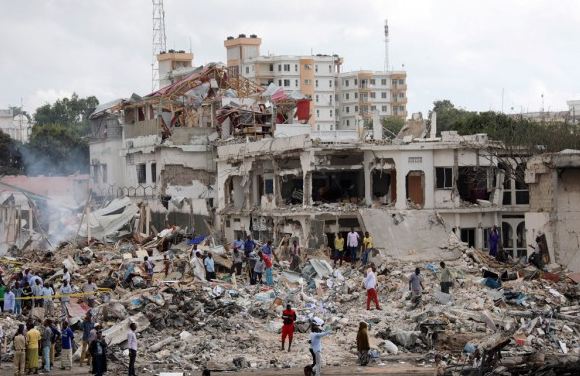
UN: Somalia conflict exacting heavy toll on civilians

The United Nations has lamented the heavy toll that armed conflict has had in Somalia, saying the war had killed thousands of people, displaced millions, damaged infrastructure and livelihoods as well as impeded access to humanitarian relief for communities in need.
A report released UN Human Rights Office and the UN Assistance Mission in Somalia (UNSOM) shows that a total of 2,078 civilian had been killed in the period from 1 January 2016 to 14 October 2017, while 2,507 others were injured.
The report dubbed “Protection of Civilians: Building the Foundation for Peace, Security and Human Rights in Somalia,” indicates that more than half the casualties (60 per cent) were attributed to al-Shabaab militants.
It added that 13 per cent of the casualties were attributed to clan militias, 11 per cent to State actors including the army and the police, four per cent to the African Union Mission to Somalia (AMISOM), and 12 per cent to unidentified or undetermined attackers.
The report said that the unlawful attacks targeted civilians through the use of indiscriminate bomb and suicide attacks by non-state groups.
It urged the identification of perpetrators of such attacks, saying they ought to be held accountable.
“Such attacks, which are prohibited under international human rights and humanitarian laws, are, in most cases, likely to constitute war crimes, and it is imperative that perpetrators are identified and held accountable,” it said.
The worst incident on a single day was the twin bomb blasts in the Somali capital, Mogadishu, on 14 October, attributed to Al-Shabaab by Somali government officials, in which at least 512 people are officially recorded to have died as of 1 December, along with 357 injured.






